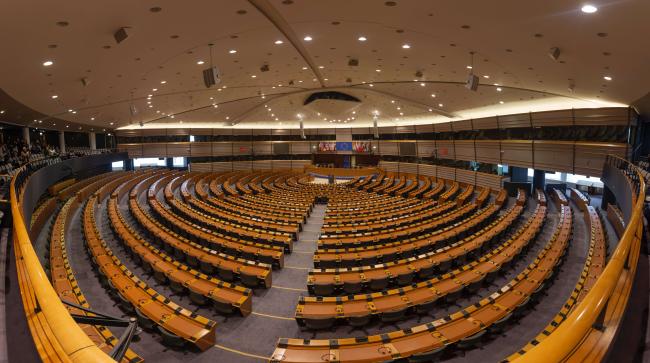
At the start of this year, we’re spotlighting some of our policy-related priority areas for the upcoming months
As representatives of booksellers of all kinds across the European Union (EU) and worldwide, we find ourselves at an intersection between culture and the retail business. At EIBF, we represent and speak on behalf of small- and medium-sized businesses (SMEs) whose daily work consists of helping book-lovers find their next read. Over the years, booksellers have proven to be innovative and resilient entrepreneurs that help stimulate their local communities, providing them with access to books and culture.
To ensure the continuous and sustainable development of the bookselling sector, in line with our core values defined in our Book Charter, we are deeply engaged in political updates within the cultural and creative sector that might affect businesses and retailers. Our focus areas range from fair competition and digitalisation to cultural recovery measures in light of the COVID-19 pandemic.
With 2021 now underway, we take this opportunity to give you a glimpse of some of the political priorities that we will be following closely:
Digital Markets Act
On 15 December 2020, the European Commission presented two proposals to regulate digital services: the Digital Services Act (DSA) and the Digital Markets Act (DMA), whose introduction we warmly welcomed.
In particular, we are looking forward to working on the DMA, as a legislative tool that strives for fairer competition in the digital world and aims to increase accountability of large online platforms with a gatekeeper role, such as online marketplaces that more often than not abuse their dominant position. We hope that the DMA will live up to our expectations by delivering a clear set of obligations and prohibitions to be followed by digital gatekeepers.
The need for a level playing field in the digital sphere has proven to be even greater during the COVID-19 pandemic, as giant e-retailers continue to operate, making huge profit, while European bookshops, despite their innovativeness and resilience over the last months, are fighting to be recognized as essential.
During 2021, we will closely monitor the evolution of both files in the European Parliament and Council discussions to ensure that booksellers’ priorities and concerns continue to be upheld.
Approval of Creative Europe Programme
The Creative Europe Programme is the key financial programme at EU level to support the cultural and creative sector. You might have seen our contribution to several joint letters in the past year, calling for an increase of the programme’s budget. We were happy to see that, together with the support of MEPs in the European Parliament’s Culture committee, our efforts were successful! The programme now has a total budget of €2.4 billion, its highest ever, at a time in which it is desperately needed.
We also celebrate the inclusion, for the first time, of a sectorial action to support the book and publishing sector in the programme. While we will have to wait and see what this translates into exactly, the recognition of the book sector as a priority in the programme is already a promising start.
With a political agreement having been reached, we now await the final ratification of the programme and the publication of the calls for proposals.
Recovery and Resilience Plans
Throughout last year, we actively called for the allocation of 2% of national Recovery and Resilience Plans to the cultural sector, together with many other cultural-sector organisations at European level. Under the European Commission’s Recovery Fund in light of the COVID-19 pandemic, Member States will have access to financial aid. To unlock the funding, each country must draft and submit a recovery and resilience plan by mid-2021, following guidelines and recommendations set by the Commission.
While some Member States have identified culture as a priority sector, we regret that this target is far from being reached. At EIBF, we continue to encourage our members to get in touch with their political representatives and demand adequate representation in their countries’ recovery plans.
Once these are submitted to the European Commission for approval, we will analyse how booksellers can benefit from the recovery plans in their respective Member States.
Digital taxation
Booksellers create local jobs, pay local taxes, and spend money with local suppliers. On the other hand, it is common knowledge that tech giants don’t pay their due taxes where they operate, thus not contributing to local economies. With this in mind, we have long condemned tax avoidance practices by large digital firms and strongly support the implementation of a digital tax.
Last year, we closely monitored the slow but steady efforts at OECD level to establish a global tax for tech giants, an approach supported and preferred by the European Commission. Nevertheless, given the delays in the process, the European Commission has announced the implementation of a European digital tax later this year. We are looking forward to seeing how this progresses and we will be pleased to provide professional information when necessary.
